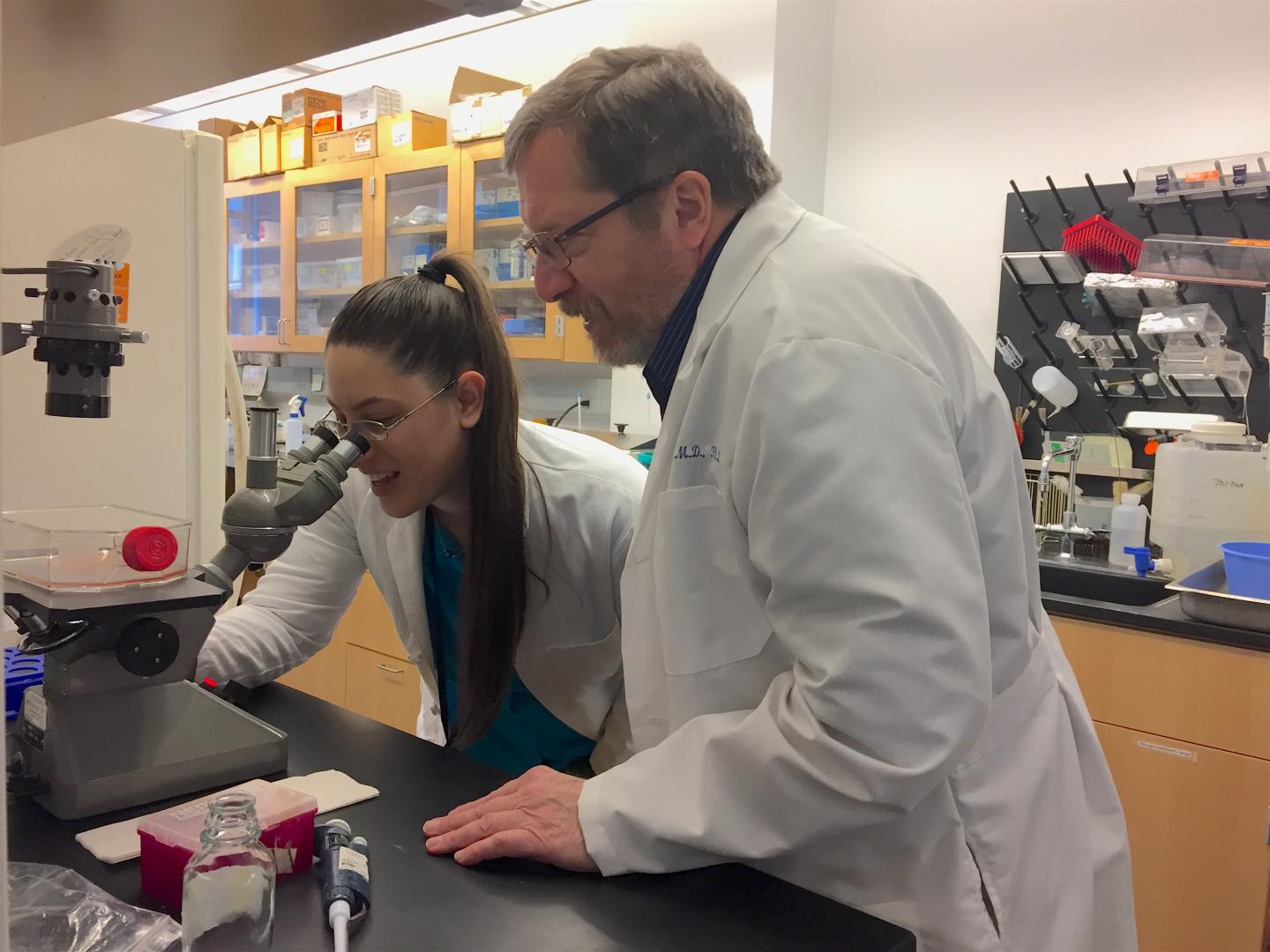
Credit: Josh Barney | UVA Health System
Two drugs used to treat asthma and allergies may offer a way to prevent a form of pneumonia that can kill up to 40 percent of people who contract it, researchers at the University of Virginia School of Medicine have found.
Influenza pneumonia results when a flu infection spreads to alveolar air sacs deep within the lungs. Normally, a flu infection does not progress that far into the lower respiratory tract, but when it does, the results can be deadly. "If infection is severe enough, and the immune response is potent enough, you get injury to these cells and are no longer able to get sufficient oxygen exchange," explained UVA researcher Thomas J. Braciale, MD, PhD. "As a result of the infection of the cells, you can develop lethal pneumonia and die."
But early administration of the two asthma drugs, Accolate and Singulair, could prevent the infection of the alveolar cells deep in the lower respiratory tract, Braciale's research suggests. "The excitement of this is the possibility of someone coming to see the physician with influenza that looks a little more severe than usual and treating them with the drugs Singulair or Accolate and preventing them from getting severe pneumonia," he said. "The fatality rate from influenza pneumonia can be pretty high, even with all modern techniques to support these patients. Up to 40 percent. So it's a very serious problem when it occurs."
Ounce of Prevention
Unlike bacterial pneumonia, influenza pneumonia is caused by a virus. That makes it very difficult to treat – and makes the possibility of prevention all the more tantalizing.
"When we look at pandemic strains of influenza that have high mortality rates, one of the best adaptations of those pandemic viruses is their ability to infect these alveolar epithelial cells," explained researcher Amber Cardani, PhD. "It's one of the hallmarks for certain strains that cause the lethality in these pandemics."
Once influenza spreads deep into the lungs, the body's own immune response can prove harmful, resulting in severe damage to the alveolar air sacs. "It's an important observation the field is coming to," Cardani said. "We really need to limit the infection of these lower respiratory airways."
Stopping the Flu Virus
The researchers determined that the alveolar epithelial cells are typically protected from influenza infection by immune cells called alveolar macrophages. In some instances, however, the flu virus can prevent the macrophages from carrying out their protective function, allowing the epithelial cells to become vulnerable to infection. "It's not as though they lack alveolar macrophages, it's just that their alveolar macrophages don't work right when they get exposed to the flu," Braciale said. "And those are the types of patients, who potentially would eventually go to the intensive care unit, that we think could be treated early in infection with Accolate or Singulair to prevent infection of these epithelial cells and prevent lethal infection."
For their next steps, the researchers are consulting with colleagues to determine if patients being treated with Accolate and Singulair are less likely to develop influenza pneumonia during flu outbreaks.
"This was a totally unexpected observation," Braciale said. "When I told multiple colleagues who are infectious disease or pulmonary physicians, they were absolutely flabbergasted."
###
Findings Published
The findings have been published by the scientific journal PLOS Pathogens. It was written by Cardani, Adam Boulton, Taeg S. Kim and Braciale.
Braciale and Cardani are both part of UVA's Department of Microbiology, Immunology and Cancer Biology and UVA's Beirne B. Carter Center for Immunology Research. Braciale's primary appointment is with the Department of Pathology.
The work was supported by the National Institutes of Health, grant R01AI015608-35, and the NIH's National Institute of General Medical Sciences, grants T32 GM007055 and T32 GM007055.
Media Contact
Josh Barney
434-906-8864
http://www.healthsystem.virginia.edu/home.html
############
Story Source: Materials provided by Scienmag





